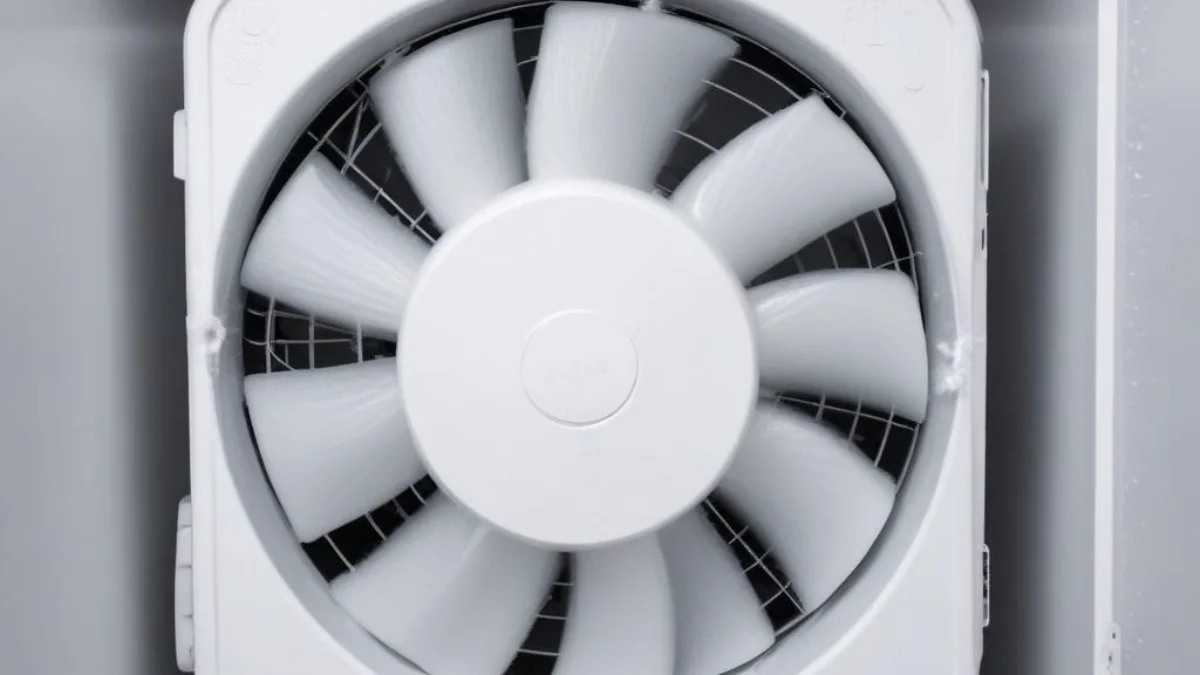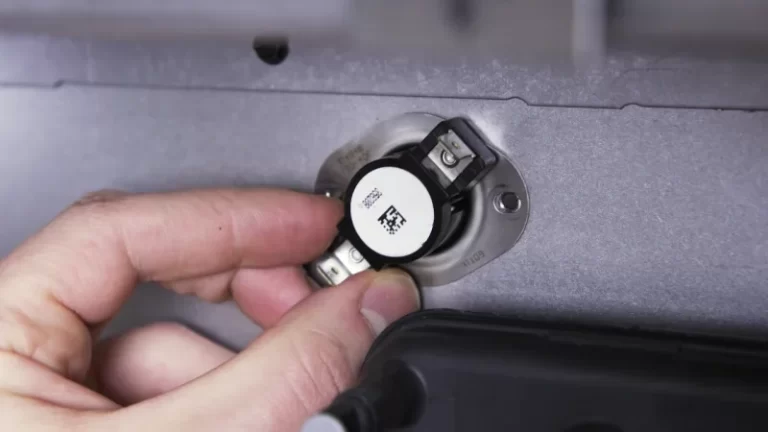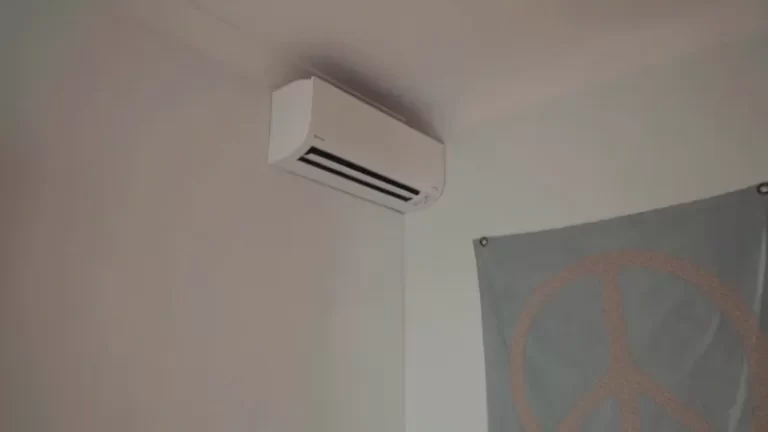Refrigerator Sounds Like Mice? Don’t Panic, Here’s the Fix
That sudden, high-pitched squeaking from your kitchen has you on high alert. You cautiously approach the refrigerator, the likely source of the unsettling noise that sounds suspiciously like a mouse. Before you start setting traps, take a deep breath. While it’s an unnerving sound, it’s rarely an actual rodent. More often than not, that squeak, chirp, or squeal is a cry for help from a component inside your appliance.
Understanding what causes these sounds is the first step to silencing them and ensuring your refrigerator continues to run efficiently. From worn-out fan motors to simple obstructions, we’ll help you diagnose the problem and walk you through the solutions to restore peace and quiet to your kitchen.
You'll Learn About
Why Your Refrigerator is Squeaking and Squealing
A refrigerator is a complex machine with many moving parts. Over time, components can wear out, become loose, or get dirty, leading to a variety of strange noises. That “mice-like” sound is typically a high-pitched squeal or chirp, often pointing to a problem with one of the fans.
Your refrigerator has two main fans essential for its cooling process: the evaporator fan and the condenser fan. When either of these starts to fail, it can produce a sound that is easily mistaken for a small animal. Identifying which fan is the culprit is key to fixing the problem.
The Evaporator Fan: The Freezer’s Air Mover
The evaporator fan is located inside your freezer compartment, usually behind a panel at the back. Its job is to circulate cold air from the evaporator coils throughout the freezer and refrigerator sections. If this fan is the source of the noise, you’ll likely hear the squeaking get louder when you open the freezer door.
Common causes for a noisy evaporator fan include:
- Worn-out motor bearings: Over time, the bearings in the fan motor can wear down, causing a high-pitched squeal or grinding noise.
- Ice buildup: If your defrost system isn’t working correctly, ice can accumulate around the fan blades, causing them to scrape against the ice as they spin.
- Debris or obstruction: Sometimes, a small piece of food packaging or other debris can get into the fan housing and obstruct the blades.

The Condenser Fan: The Heat Exchanger
The condenser fan is located at the back of the refrigerator, near the floor, close to the compressor. This fan pulls air over the condenser coils to dissipate heat and cool the refrigerant. A noise from this area often indicates an issue with the condenser fan.
Common causes for a noisy condenser fan include:
- Dust and debris: The condenser fan can accumulate significant dust, pet hair, and other debris, which can obstruct the fan blades or strain the motor.
- Failing motor: Just like the evaporator fan, the condenser fan motor can wear out over time, leading to squealing or chirping sounds.
- Loose components: The fan blade or the mounting grommets can become loose, causing rattling or vibrating noises.
Pinpointing the Source of the Sound: A Step-by-Step Guide
Before you can fix the noise, you need to determine its origin. This simple diagnostic process will help you figure out which part of your refrigerator needs attention. Always unplug your refrigerator before attempting any inspection or repair.
Step 1: Listen Closely
Try to pinpoint where the noise is coming from. Is it loudest inside the freezer, or does it seem to be coming from the bottom back of the unit? Open the refrigerator and freezer doors. If the noise gets louder when the freezer door is open, the evaporator fan is the likely culprit.
Step 2: Inspect the Evaporator Fan
If you suspect the evaporator fan, you’ll need to access it. This usually involves removing the contents of your freezer and unscrewing the back panel inside. Once you can see the fan, check for any visible ice buildup or obstructions. Try spinning the fan blade by hand; it should move freely. If it feels stiff or makes a noise, the motor is likely faulty.
Step 3: Examine the Condenser Fan
If the sound is coming from the back of the fridge, pull the unit away from the wall to access the rear panel. Most condenser fans are located behind a thin cover panel at the bottom. After removing the panel, inspect the fan for dust and debris. Clean the blades and the surrounding area with a soft brush and vacuum. Check if the fan blade is loose or damaged.
Actionable Solutions: How to Silence Your Noisy Refrigerator
Once you’ve identified the source of the squeaking, you can take steps to fix it. Some issues are simple DIY fixes, while others may require professional help.
For a Noisy Evaporator Fan
If you find significant ice buildup around the evaporator fan, it’s a sign of a defrost system problem. You can manually defrost the freezer by unplugging the refrigerator and leaving the doors open for several hours. However, this is a temporary fix. If the ice returns, you may have a faulty defrost heater, thermostat, or control board, which will likely require a professional technician.
If there’s no ice but the fan is noisy or doesn’t spin freely, the evaporator fan motor probably needs to be replaced. This is a common repair and a task that many handy homeowners can tackle themselves by ordering the correct replacement part for their refrigerator model.
For a Noisy Condenser Fan
Often, a thorough cleaning is all the condenser fan needs. Regularly cleaning your condenser coils and fan can prevent noises and improve your refrigerator’s efficiency. If cleaning doesn’t solve the problem and the fan motor continues to squeal, it’s time to replace it. Similar to the evaporator fan, replacing the condenser fan motor is a manageable DIY project for many.
Sometimes, vibrations can cause other issues. For instance, if you notice your lights flicker when the dehumidifier turns on, it could be related to the strain on your home’s electrical circuit, similar to how a struggling refrigerator component can affect the appliance’s performance.
Other Potential Culprits of Refrigerator Noises
While fans are the most common source of “mice-like” sounds, other components can also cause squeaks and squeals.
Water Inlet Valve
The water inlet valve controls the flow of water to your ice maker and water dispenser. A faulty or clogged valve can sometimes produce a high-pitched vibrating or squealing noise when it operates. If the noise only occurs when the ice maker is filling or you’re dispensing water, this valve could be the problem.
Compressor
The compressor is the heart of your refrigerator’s cooling system. While a low hum is normal, a loud, high-pitched squeal from the compressor can indicate a serious problem. Compressor repairs are complex and expensive, often requiring a professional diagnosis to determine if a repair or replacement is the best option.
Troubleshooting Summary Table
Here’s a quick reference table to help you diagnose and address those pesky refrigerator noises.
| Sound | Potential Cause | Recommended Action |
|---|---|---|
| High-pitched squealing from inside the freezer | Worn evaporator fan motor or ice buildup | Inspect for ice. If clear, replace the fan motor. If icy, troubleshoot the defrost system. |
| Chirping or squeaking from the back of the fridge | Dirty or failing condenser fan motor | Unplug and clean the fan and coils. If noise persists, replace the fan motor. |
| Vibrating or squealing when dispensing water | Faulty water inlet valve | Inspect the valve and consider replacement. |
| Loud, persistent squeal from the compressor area | Failing compressor | Contact a professional technician immediately. |
| Rattling or vibrating | Loose drain pan or refrigerator not level | Secure the drain pan and adjust the leveling feet. |
When to Call a Professional
While many of these issues can be resolved with a bit of DIY spirit, some situations are best left to the experts. If you’re uncomfortable working with electrical components, or if the problem involves the sealed refrigerant system (like the compressor), it’s crucial to call a qualified appliance repair technician.
Ignoring persistent or loud noises can lead to more significant damage and costly repairs down the line. It’s similar to hearing strange sounds from other major appliances; for example, if your water heater sounds like rocks, it’s a clear sign of sediment buildup that needs to be addressed. Just as you wouldn’t ignore a potential partial power outage during a storm, don’t ignore your refrigerator’s warning signs.
Preventative Maintenance for a Quiet Kitchen
The best way to deal with refrigerator noises is to prevent them from happening in the first place. Regular maintenance can extend the life of your appliance and keep it running quietly and efficiently.
Clean the condenser coils at least twice a year. This simple task improves cooling performance and reduces strain on the condenser fan and compressor. Also, ensure your refrigerator is level and has adequate clearance around it for proper airflow. By taking these proactive steps, you can keep your kitchen free from mysterious squeaks and enjoy the gentle hum of a healthy, happy refrigerator.


